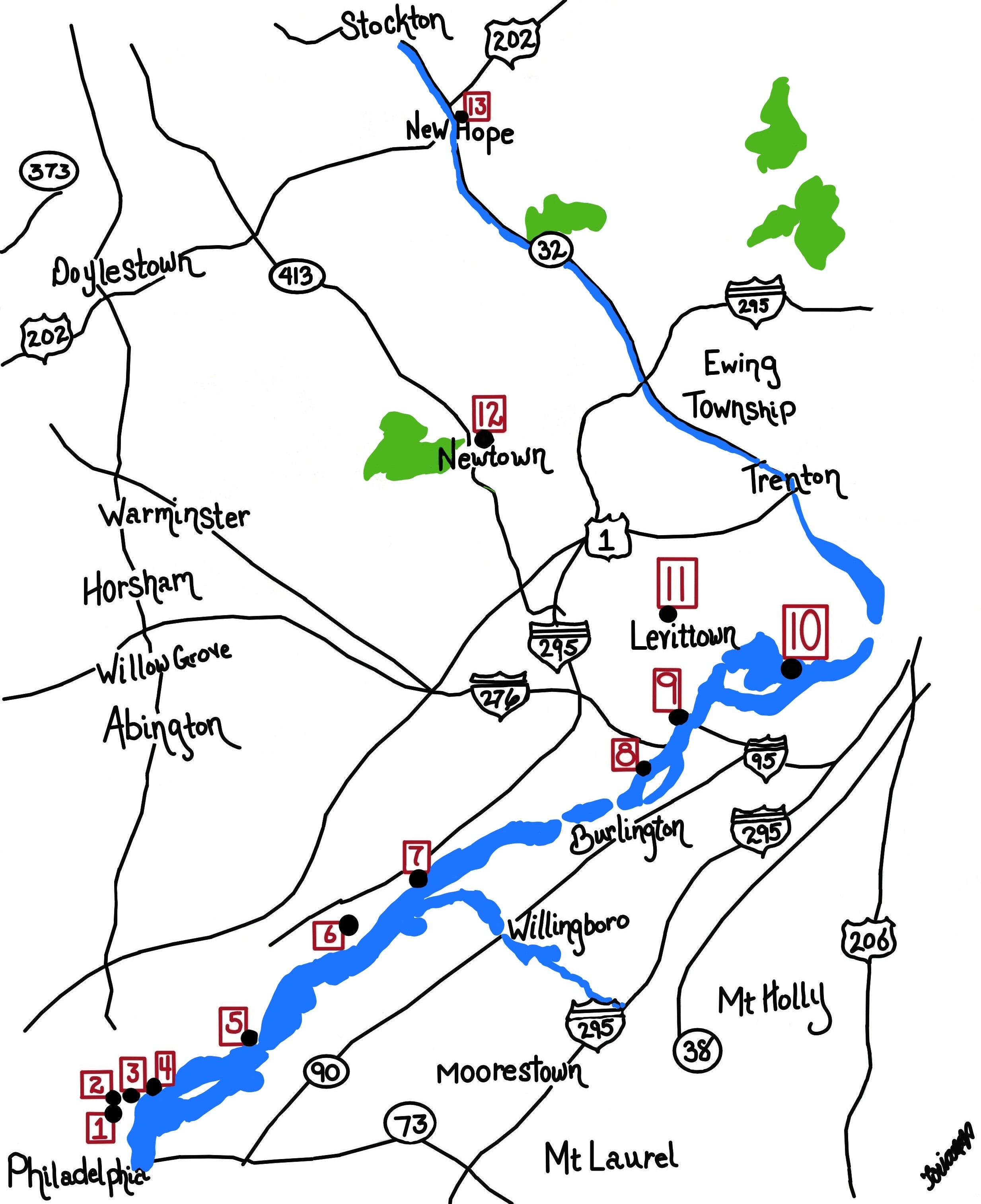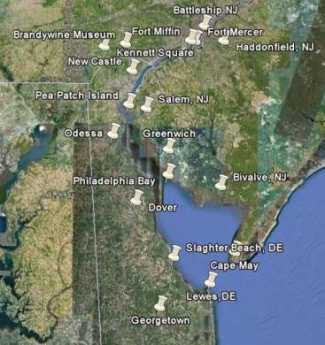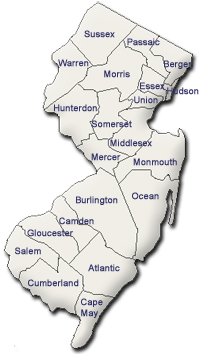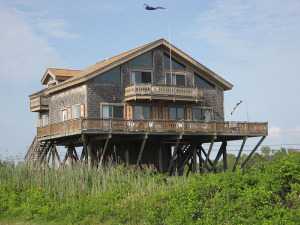Related Topics
Philadelphia's River Region
A concentration of articles around the rivers and wetland in and around Philadelphia, Pennsylvania.

The Proprietorship of West Jersey
The southern half of New Jersey was William Penn's first venture in real estate. It undoubtedly gave him bigger ideas.
Nature Preservation
Nature preservation and nature destruction are different parts of an eternal process.
Land Tour Around Delaware Bay
 Start in Philadelphia, take two days to tour around Delaware Bay. Down the New Jersey side to Cape May, ferry over to Lewes, tour up to Dover and New Castle, visit Winterthur, Longwood Gardens, Brandywine Battlefield and art museum, then back to Philadelphia. Try it!
Start in Philadelphia, take two days to tour around Delaware Bay. Down the New Jersey side to Cape May, ferry over to Lewes, tour up to Dover and New Castle, visit Winterthur, Longwood Gardens, Brandywine Battlefield and art museum, then back to Philadelphia. Try it!
New Jersey (State of)
 The Garden State really has two different states of mind. The motto is Liberty and Prosperity.
The Garden State really has two different states of mind. The motto is Liberty and Prosperity.
New Jersey Ponders a Rising Sea Level

|
| Future House Styles? |
A certain gentleman in a professional position to dominate conversations about rising sea levels, is afraid of being sued and requests his name be withheld from the following. Let's just call it hearsay, suitable only for conversational banter.
If the icecap now sitting atop Greenland should melt, it can rather easily be calculated that sea level would rise to the point where the Delaware River would be 83 feet deep. The Army Corps of Engineers would then probably have more urgent matters to attend to, but at least they would no longer have to cope with deepening the channel to 40 feet. If the Antarctic ice cap should then melt on top of it, the sea level would rise an additional 220 feet, resulting in a Delaware River 300 feet deep. There might be some dry real estate on top of Blue Mountain, but not much else on the Atlantic seaboard would be dry, so there would likely be the additional problem of keeping other people from climbing up to sit in your perch. Perhaps the Hawks would bring you something to eat.
A more immediate issue relates to the barrier islands. It is thought the crumbling of mountains into the sea accounts for the sandy beaches of the Atlantic and Gulf coasts; the more recent mountains along the West coast have not progressed to the point of piling up enough sand to start the process. The cycle of barrier islands is as follows.
Barrier islands, if left undisturbed, will gradually migrate toward the land mass behind them, filling up the intervening bay, and eventually adding to the mainland. But that's not the end of the cycle, because the continuous wave and tidal action will generate a new barrier island further out to sea. When the new island reaches a critical equilibrium with the waves and storms, it begins the cycle of deterioration all over again. Presumably, the sandy lowlands of southern New Jersey, the Delmarva Peninsula, and most of Florida are the result of many cycles of barrier islands adding themselves to the mainland. Presumably, the process will run out of sand someday, but not soon enough to worry about.
When affluent people build showplaces on the barrier islands, a great deal of concrete is laid on the island surface for roadways and parking lots, as well as jetties and other desperate efforts to prevent erosion from destroying the beaches, beachfront property, and real estate values. This process is much more active and rapid than most sunbathers seem to imagine. There are channel markers and monuments of the 18th century that are a mile or more out to sea in the 21st century. Almost a mile of beachfront has disappeared at Cape May and Cape Henlopen in Delaware. Lots of other real estate has been swallowed, but records of historical markers at the mouth of the bay have been more diligently maintained. The residents demand that sand be dredged and dumped on their beaches to keep even with the destructive forces at work. All of this ultimately useless resistance to Nature costs a great deal of money. Those who observe the contest between the protests of King Canute and the resistance of other New Jersey taxpayers to rising taxes estimate that around 2040 the cost of interrupting the barrier island cycle will become so burdensome that taxpayers will successfully put a stop to resisting natural beach erosion. The political uproar will surely be horrendous, so there is a good reason for oceanographers to avoid going public with these inconvenient truths. And all of this doomsday talk, by the way, ignores the issue of global warming, which will surely make it all the worse.
Originally published: Tuesday, September 16, 2008; most-recently modified: Friday, May 24, 2019